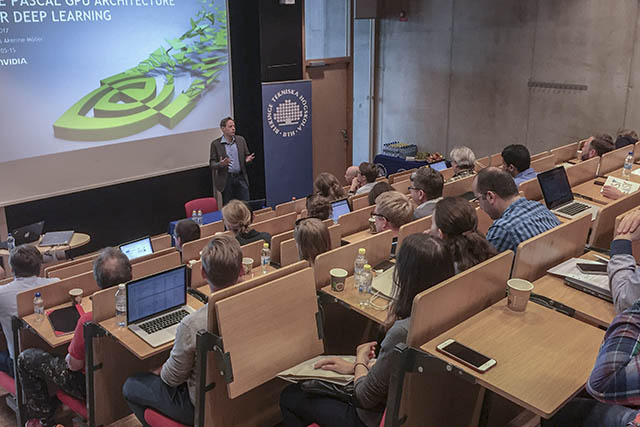Already today AI is present in our everyday lives. It suggests friends for us on social media and helps us pick a TV-series we might like on Netflix. We have just seen the first self-driving cars on our roads and through algorithms computers can identify new tumors as good as, or better, than human doctors. The possibilities of AI are enormous but AI can also be a potential threat. It is not likely that we will prevent ourselves from improving technology and as machines get smarter they will continue to improve themselves. Which jobs will be obsolete? Can we build AI without losing control? What happens when technological singularity is reached and can we prevent the identified risks? There is a great need for researchers and practitioners to meet and present past and current research as well as to discuss the upcoming challenges.
Today, May 15, researchers and practitioners from all over Sweden have gathered at Blekinge Institute of Technology for the 30th annual workshop of the Swedish Artificial Intelligence Society, SAIS. The SAIS workshop provides an ideal forum for contacts between AI researchers and practitioners in Sweden and neighboring countries, as well as for establishing links with related research disciplines and industry.
SAIS 2017 will feature 12 technical presentations of current research in artificial intelligence and related areas. The workshop program also includes a presentation by the winner of the annual SAIS master’s thesis prize, Thomas Rosenstatter from Halmstad University, and presentations from three distinguished keynote speakers: Professor Johannes Fürnkranz from Technische Universität Darmstadt, Dr Tina Eliassi-Rad from Northeastern University, and Professor Tomas Akenine-Möller from Lund University and NVIDIA.
Today we might not have all the solutions but it is time we give the topic of AI more attention. At the SAIS conference Tina Eliassi’s talk on machine learning will be a public lecture and more than 100 participants have signed up to listen. The lecture will address her own current research as well as the initiative Women in Machine Learning, which seeks to create a platform for women in computer science and machine learning and to increase the number of women who study and conduct research within the field.
Artificial intelligence and machine learning are the drivers behind the automated society and the key to unlocking the potential of digitalization. It is paramount that Swedish companies, universities, and organizations collaborate to innovate and remain relevant in the international battle of ideas that shape the society of tomorrow. SAIS serves as an excellent platform to support and foster research and innovation in this respect.


Leave A Comment